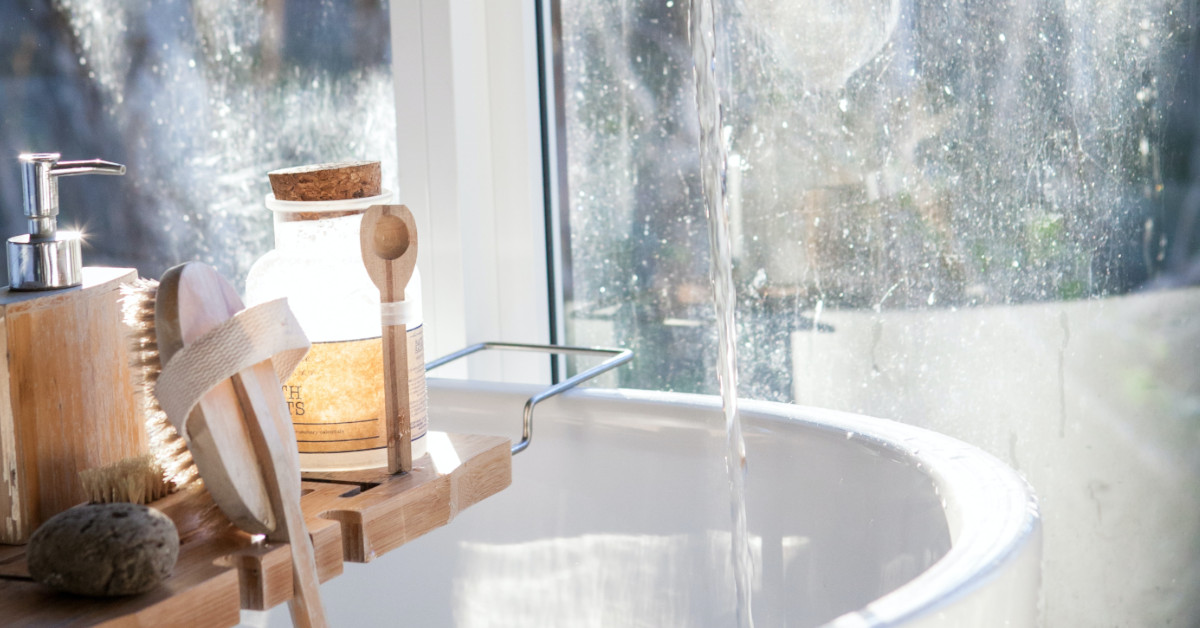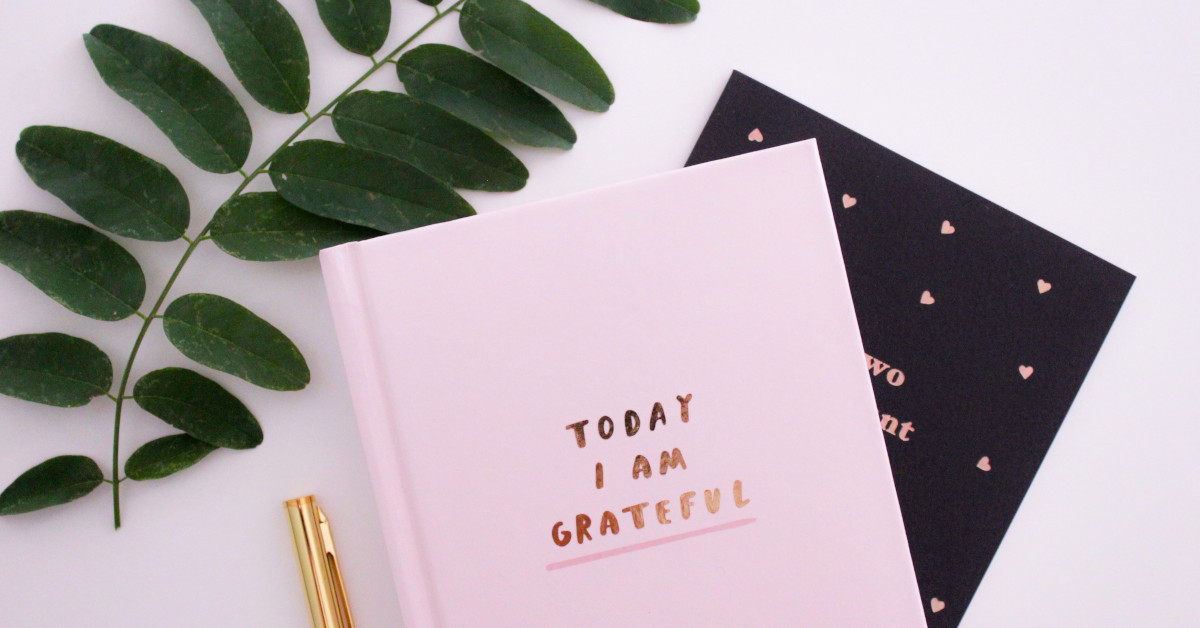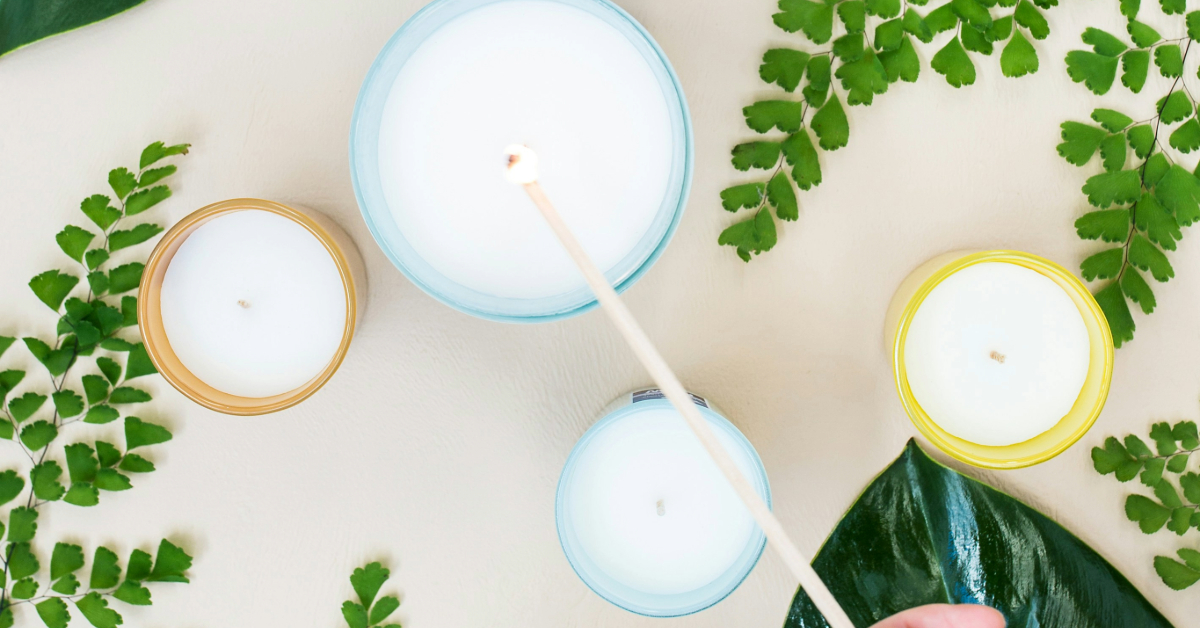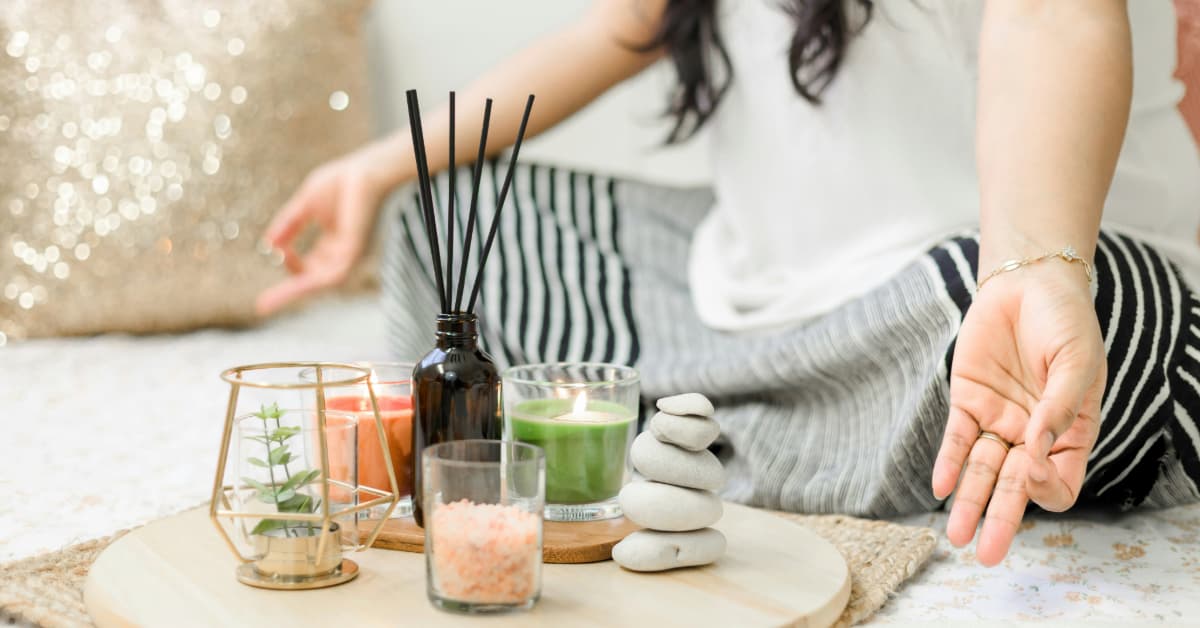Learn why self-care is important, how to prioritise self-care for your wellbeing, and how to incorporate self-care into your routine.

I used to think self-care meant booking a spa day or lighting a fancy candle I’d been “saving” for the right mood.
But honestly? Sometimes real self-care is saying no to plans you don’t have the energy for – or just actually drinking water before you get a headache.
The thing is, self-care gets thrown around so much these days that it’s kind of lost its meaning.
Between the glossy Instagram posts and “treat yourself” culture, it can feel like self-care is just another thing we’re supposed to be doing better at.
Which, let’s be real, totally misses the point.
At its core, self-care isn’t about doing more. It’s about checking in with yourself and doing what you actually need. That might mean a bath – but it might also mean a hard conversation, an early night, or leaving the laundry for another day.
In this post, I’m digging into what self-care really means, why it matters so much for your wellbeing, and how to make it feel a little less like a chore and a little more like a kind act for your future self. Let’s get into it.
- What is Self-Care?
- Why is Self-Care Important?
- What are the Benefits of Self-Care?
- Getting Over Common Misconceptions with Self-Care
- How to Incorporate Self-Care into Your Routine
- Examples of Self-Care
- Final Thoughts
What is Self-Care?
Self-care is one of those terms that gets tossed around so often, it starts to lose all meaning. One minute it’s being used to sell bubble baths and fancy face masks, the next it’s a vague “wellness” buzzword we’re all supposed to magically understand.
But at its core? Self-care is simply about looking after yourself – on purpose.
It’s the small, intentional things you do to protect your mental, emotional, and physical wellbeing.
It’s not always pretty. It’s not always Instagrammable. And it definitely doesn’t have to cost a thing.
Self-care is checking in with yourself and asking: “What do I need right now?” Then actually listening to the answer.
It’s also not one-size-fits-all. What feels restorative to me, might feel like a chore to you.
And that’s totally fine. The point isn’t to follow someone else’s version of self-care – it’s to build your own.
And here’s the thing: self-care isn’t selfish. It’s not indulgent or lazy or “a waste of time”. It’s what helps you stay grounded when life gets hectic. It gives you the capacity to show up for others and for yourself.
So next time you feel overwhelmed or stretched too thin, try checking in with yourself – without judgement. Your don’t need to earn rest.
You’re allowed to take care of yourself simply because you’re human.
Why is Self-Care Important?
Because burnout isn’t a badge of honour.
We live in a world that praises being busy, productive, and always on.
And honestly? That constant push to do more can leave us completely drained – physically, mentally, and emotionally.
That’s where self-care comes in. It acts like a reset button. It’s the thing that helps refill your cup when it’s running dangerously low.
When you consistently take time to look after yourself – even in really small ways – you’re building resilience. You’re creating breathing space. And you’re reminding your body and mind that you’re worth taking care of.
Self-care helps lower stress levels, improves sleep, boosts focus, and supports your immune system (yep, even science says so).
Mentally, it can reduce anxiety, regulate emotions, and give you a greater sense of balance – even when life is doing its chaotic thing.
But maybe more importantly? It reconnects you with you. It helps you tune into your needs, your energy, your limits. That kind of self-awareness is a game-changer when it comes to managing overwhelm or avoiding burnout in the first place.
And no – you don’t have to be falling apart before you “deserve” to prioritise yourself.
Self-care is important because it keeps you well. Not perfect. Not polished. Just well. It’s as simple as that.
What are the Benefits of Self-Care?
So you’ve probably heard that self-care is “good for you”, but what does that actually mean?
Let’s break it down.
First off, self-care helps lower stress – big time. When you’re regularly doing small things that help you decompress (think: a short walk, a quiet cuppa, saying no without guilt), your nervous system gets a break. And when you’re not constantly running on empty, you’re way less likely to hit burnout mode.
It also boosts your mood. Whether it’s from moving your body, journaling your thoughts, or just having a proper laugh with a friend, self-care can regulate your emotions and even increase feel-good hormones like dopamine and serotonin.
Basically: it makes you feel more like yourself again.
On top of that, self-care supports your physical health. Yep – it’s not just about your mind. Eating well, getting enough sleep, and even resting when you need to can strengthen your immune system, improve your digestion, and help balance hormones (which, let’s be real, is something most of us could use a little help with).
And here’s something that often gets overlooked: it improves your relationships too.**
When you’re showing up for yourself, you’re in a much better place to show up for other people. You communicate better. You’re more patient. You’re less reactive. It’s a win-win.
Most importantly though? Self-care reminds you that you matter.
It’s a quiet little way of saying “I’m worth the time and effort.” And honestly, that’s where so much of our wellbeing begins – not in just what we do, but in how we treat ourselves while we do it.
Getting Over Common Misconceptions with Self-Care
Self-care gets a bit of a bad rap sometimes, doesn’t it? It’s easy to think it’s just about bubble baths, scented candles, or splurging on fancy skincare. But that’s only one tiny slice of the pie – and honestly, it’s not the whole picture.
Myth #1: Self-care is selfish.
Wrong. Taking care of yourself helps you show up better for others. It goes back to that classic saying, “You can’t pour from an empty cup”. And it’s so true! Self-care isn’t about ignoring everyone else and being selfish; it’s about making sure you’re ok too.
Myth #2: Self-care has to be time-consuming.
Nope. It can be as simple as pausing for five deep breaths, setting a boundary, or taking a few minutes to stretch during your workday.
It’s not about perfection or huge time commitments – it’s about consistency and intention.
Myth #3: You need a big “reset” or vacation to practice self-care.
While breaks are amazing and sometimes genuinely needed, self-care can be more about the little, everyday habits.
It’s the tiny moments of kindness to yourself that add up over time and make the biggest difference.
Myth #4: Self-care is only for when you’re stressed or burnt out.
Actually, self-care is preventative. It helps keep you balance before you reach your limit, so you’re less likely to feel overwhelmed in the first place.
Recognising these misconceptions is the first step to making self-care work for you – not someone else’s idea of what it should look like.
So, ditch the pressure. Start small. And remember: self-care isn’t a chore. It’s your personal way to hit “refresh” on your life.
How to Incorporate Self-Care into Your Routine
Self-care gets a bit of a bad rap sometimes, doesn’t it? It’s easy to think it’s just about bubble baths, scented candles, or splurging on fancy skincare. But that’s only one tiny slice of the pie – and honestly, it’s not the whole picture.
Myth #1: Self-care is selfish.
Wrong. Taking care of yourself helps you show up better for others. It goes back to that classic saying, “You can’t pour from an empty cup”. And it’s so true! Self-care isn’t about ignoring everyone else and being selfish; it’s about making sure you’re ok too.
Myth #2: Self-care has to be time-consuming.
Nope. It can be as simple as pausing for five deep breaths, setting a boundary, or taking a few minutes to stretch during your workday.
It’s not about perfection or huge time commitments – it’s about consistency and intention.
Myth #3: You need a big “reset” or vacation to practice self-care.
While breaks are amazing and sometimes genuinely needed, self-care can be more about the little, everyday habits.
It’s the tiny moments of kindness to yourself that add up over time and make the biggest difference.
Myth #4: Self-care is only for when you’re stressed or burnt out.
Actually, self-care is preventative. It helps keep you balance before you reach your limit, so you’re less likely to feel overwhelmed in the first place.
Recognising these misconceptions is the first step to making self-care work for you – not someone else’s idea of what it should look like.
So, ditch the pressure. Start small. And remember: self-care isn’t a chore. It’s your personal way to hit “refresh” on your life.
Examples of Self-Care
Self-care comes in all shapes and sizes, and what works for one person might not feel right for another.
So here’s a handful of ideas across different areas to inspire you – pick and choose what fits you best!
Mind:
- Meditation or deep breathing: Even just 5 minutes can help calm the mental noise – I tend to find 5 minutes is perfect, too long and I just can’t concentrate.
- Reading a good book: Escape, learn something new, or just relax with a story you love.
- Journaling: Write down thoughts, feelings, or things you’re grateful for. It’s like a mental declutter.
- Digital detox: Unplug from screens for a bit – even a short break can refresh your brain.
Body:
- Gentle movement: Yoga, stretching, or a slow walk outside – nothing intense, just movement that feels good.
- Nourishing meals: Cooking or eat food that fuels you, not just fills you.
- Sleep hygiene: Prioritise quality sleep by winding down without screens and setting a bedtime routine.
- Hydration: Drinking enough water often gets overlooked but makes a big difference.
Emotional:
- Setting boundaries: Saying no without guilts protects your energy.
- Connecting with loved ones: A chat with a friend or family member can cheer you up.
- Creative outlets: Drawing, crafting, singing, or any hobby that lets you express yourself.
- Practicing kindness: Whether it’s to yourself or others, small acts of kindness can boost your mood.
Remember, self-care doesn’t have to be grand gestures or “perfect” routines. It’s about finding little things that make you feel supported and care for – every single day. Consistency is key.
Final Thoughts
Self-care isn’t some mysterious ritual or a luxury reserved for spa days. It’s simply about tuning in to what your mind, body, and emotions need – and giving yourself permission to meet those needs without guilt or pressure.
Whether it’s a quick moment to breathe, a good night’s sleep, or saying no to something that drains you; every small act counts.
The key is making self-care a regular part of your routine, tailored to what feels right for you.
Start small, keep it simple, and watch how those little moments add up to a healthier, happier you.





